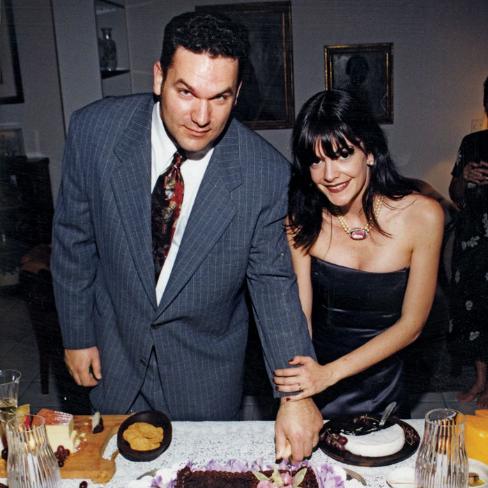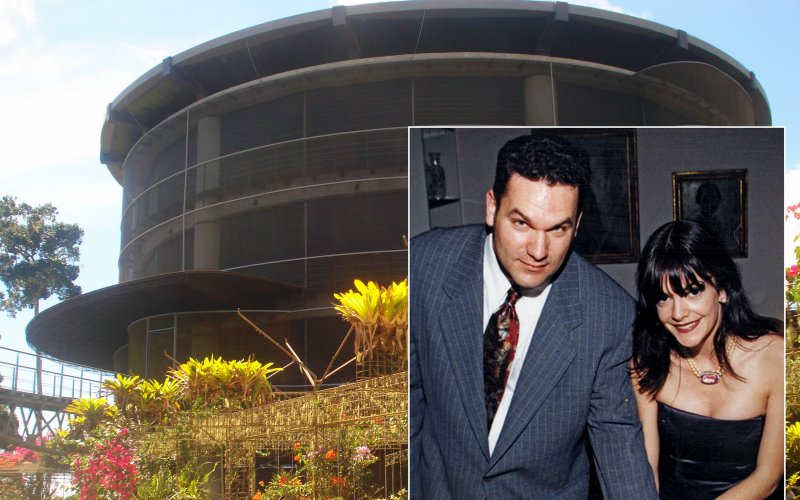Costa Rica News – An empty glass mansion rises out of the jungles of the Talamanca Mountains near the little town of Florida de Barú in Costa Rica. Today, no one lives in the multi-million-dollar house, a circle of glass with 360-degree views perched above a sprawling estate. Once, though, it was home to a pair of reclusive expatriates from the United States who wanted to build a refuge for wildlife and, in the process, for themselves.
 John Bender, a burly, bearded hedge fund manager, had made millions on Wall Street, but the stress of the job took a toll on his mental and physical health. Then in 1998, at his farm in Virginia, a friend introduced him to Brazilian-born Anne Maxine Patton, whose delicate beauty and intense passions won him over. She started visiting the house every day, staying for hours at a time. Three weeks later he asked her to marry him. They were united, she testified later, by a shared love of animals and conservation, and they began to act on their dreams.
John Bender, a burly, bearded hedge fund manager, had made millions on Wall Street, but the stress of the job took a toll on his mental and physical health. Then in 1998, at his farm in Virginia, a friend introduced him to Brazilian-born Anne Maxine Patton, whose delicate beauty and intense passions won him over. She started visiting the house every day, staying for hours at a time. Three weeks later he asked her to marry him. They were united, she testified later, by a shared love of animals and conservation, and they began to act on their dreams.
In 2000, Bender and Patton moved to Costa Rica. They planned to build a private refuge for injured, abandoned and endangered animals on a secluded 9.65-square-mile property in the remote southwestern corner of the country. They constructed their secluded four-story glass mansion there and named the refuge Boracayán as they settled in to live among the sloths, monkeys and parrots.
A group of American botanists who visited the refuge were ecstatic about what they found there: The refuge “covers 5,000 acres of original rainforest mixed with secondary forest and is situated on a ledge of the Fila Costeña Norte in southern Costa Rica, with a magnificent view of the Pacific beaches and coral reefs three-thousand feet below,” wrote the visitors from Florida, who were searching for, and found, rare orchids as they trudged “up and down slippery trails, carrying large sacks filled with plants, and carefully avoiding highly-venomous pit vipers.”
But over the years, cloistered in their mountain keep, complete with moat, Bender and Patton became ever more reclusive. Their tastes became more eccentric and obsessive. And by 2009, Patton was beginning to waste away. She had contracted Lyme disease, and began to lose weight. She treated the condition with intravenous morphine. She was a shell of herself. She weighed only 70 pounds.
Then on January 8, 2010, police answered a call to find Bender dead in the couple’s bed with a gunshot wound in his neck. His wife was there with him, holding his hand and shaking uncontrollably, when authorities arrived.
The mystery of precisely why and how Bender died reads like pulp fiction, set against a backdrop of high stakes lawsuits, precious stones worth millions, and mental illness.
In January 2013 Patton was tried for Bender’s murder — and acquitted. But this is one of those cases where the judgment of the court only deepens the mystery. The decision was less a declaration of Patton’s innocence than an indictment of the prosecution’s case. The judge ruled that the forensic evidence presented by the state was inconclusive but acknowledged that Patton could have killed her husband.
Curiously, Patton’s accusers never came up with a reason she’d have killed her husband. In the court record they claim she acted “without any apparent motive but clear intent to end the life of the victim, John Felix Bender.”
The prosecutor’s office appealed the acquittal. There is no protection against double jeopardy in Costa Rica. A superior criminal court ruled that the first trial incorrectly reviewed evidence and alleged inconsistencies in her testimony. The appeals court ordered a retrial in August 2013. And Patton’s second trial for the murder of her husband began Monday, May 23. If found guilty, the 43-year-old widow could face a 25-year sentence in Costa Rica’s overcrowded prisons.
On Monday, Patton leaned her small frame on a cane as she walked with difficulty into the pale green court  room in San Isidro de El General, Pérez Zeledón. Patton told the local news channel Repretel, in a quivering voice, “I have no doubt that everything is going to end up OK. I know the truth.”
room in San Isidro de El General, Pérez Zeledón. Patton told the local news channel Repretel, in a quivering voice, “I have no doubt that everything is going to end up OK. I know the truth.”
But prosecuting attorney Edgar Ramírez told the court that the state had“irrefutable” evidence proving Patton killed her husband in his sleep, and began to build again a picture of obsession and excess in the jungle.
The prosecutor’s office confirmed to The Daily Beast that precious stones worth $7 million, some mounted in jewelry, others loose about the house, were found by police the night Bender died. Prosecutors alleged the jewels were contraband and seized them.
And then there were the guns.
The couple claimed that they were attacked by corrupt Costa Rican police officers in 2001, allegedly hired to intimidate them by a U.S. citizen who had sued Bender because of previous business deals.
Patton’s lawyer, Fabio Oconitrillo, acknowledged in a television interview that Bender developed a “fondness” for guns after the police encounter. The couple had purchased several small arms, obtained permits and learned to shoot. Authorities also found a shotgun and an unregistered AK-47 automatic rifle in the home.
When Patton was called to testify, she gripped her cane like a much older woman and blinked back the tears welling in her large dark eyes as she took the stand.
Despite the scenic surroundings of their home, the couple struggled with their mental health. Bender wrestled with bouts of depression, she said. A friend of Bender’s confirmed in testimony that he had been depressed for weeks before the night he died. Patton said that Bender was despondent over the deaths of some of the animals in their reserve and, perhaps most importantly, had been told by a lawyer who managed the trust that the money was running out.
Patton testified that her husband showed signs that he intended to end his life in the days leading up to the shooting, repeating what she had told the local press: “He told me everyday, ‘I want to kill myself.'”
Besides her tenuous mental health, for which she took two powerful drugs, Patton’s body was ravaged by the Lyme disease.
On the night of Jan. 8, 2010, Bender allegedly brought one of their guns to their bedroom on the fourth floor of the mansion.
Patton said that as she lay down to sleep that night she heard her husband mumbling. She opened her eyes to see him with a gun pointed at his head. Patton claimed that she got on her knees and lunged for the weapon, grabbing Bender’s arms. In the struggle the gun fired the shot that killed John Bender. She embraced his body on the bed after the shot before running to get help.
The prosecution alleged that there were holes in Patton’s story that the first trial failed to address.
The trajectory of the bullet was particularly suspect. The attorney argued that the bullet passed from the lower right hand side of Bender’s neck up and back into the left side of his brain. The likelihood of suicide, they argued, rested on whether or not Bender was right- or left-handed — a simple fact remains vehemently disputed.
The prosecution argued that Bender was left-handed but would have had to hold the gun with his right hand to make the killing shot. Bender’s head of security for the refuge, however, testified that the one-time financier could shoot with both hands. Patton, of course, also knew how to handle a gun.
The state also cast doubt about Bender’s intention to end his life because of how he was found in bed. Court documents report that he was found lying on the bed, resting on three pillows and wearing earplugs. His legs were also bent in what the prosecution argued was a sleeping position inconsistent with suicide.
Another question dealt with the lack of gunpowder residue on Bender’s hands. Patton reportedly wiped her hands with napkins that tested positive for gun residue.
Since her husband’s death, Patton has lived a much simpler life.
Embroiled in a lawsuit against her former lawyer for control of her husband’s estate, Patton depends on the support of friends and family to pay her rent for an apartment in Escazú, a wealthy suburb of the capital, San José. If she wins her freedom, again, Patton said she plans to reopen the refuge, saying that it’s what Bender would have wanted.
A verdict is expected this week.
By Zach Dyer, From http://www.thedailybeast.com/

